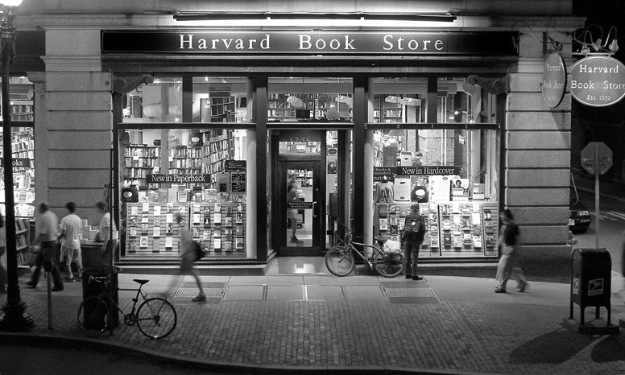
Imagine for a moment what it would feel like if people walked into your company and used the lobby to call your competitors and buy their products. That’s standard consumer behavior in a bookstore. People browse, find a book they like, pull out their smart phone, and order online.
Making an intuitive leap, Jeff wondered if the opposite could be true? Maybe access to the vast universe of digital content could also save the bookstore. Maybe the bookstore, while limited in inventory, could evolve in the digital world and become a destination where people had access to every digitized book ever published.
To truly compete, he would also have to solve consumer’s expectations for instant gratification and delivery. Jeff needed a complete production, distribution, and fulfillment model. He has likely shocked a lot of people by building one in his own backyard.
Essentially, Jeff installed a printing press to close the inventory gap with Amazon. The Espresso Book Machine sits in the middle of Harvard Bookstore like a hi-tech visitor to an earlier era. A compact digital press, it can print nearly five million titles including Google Books that are in the public domain, as well as out of print titles. We’re talking beautiful, perfect bound paperbacks indistinguishable from books produced by major publishing houses. The Espresso Book Machine can be also used for custom publishing, a growing source of revenue, and customers can order books in the store and on-line.
You can walk into the store, request an out-of-print, or hard-to-find title, and a bookseller can print that book for you in approximately four minutes.